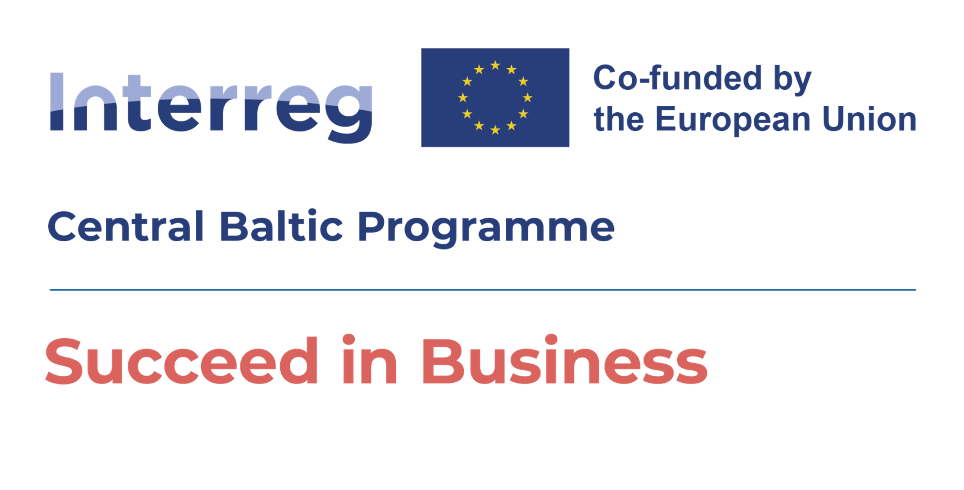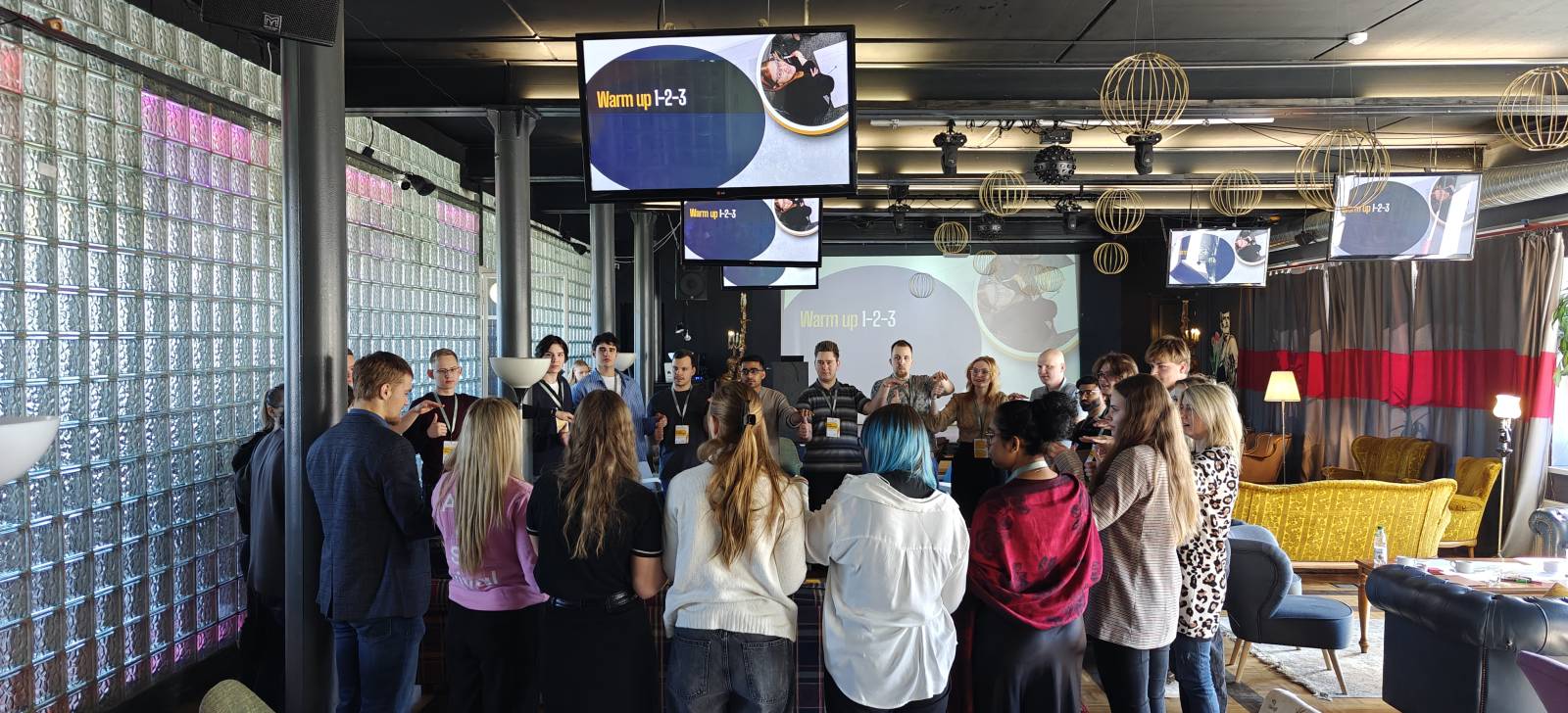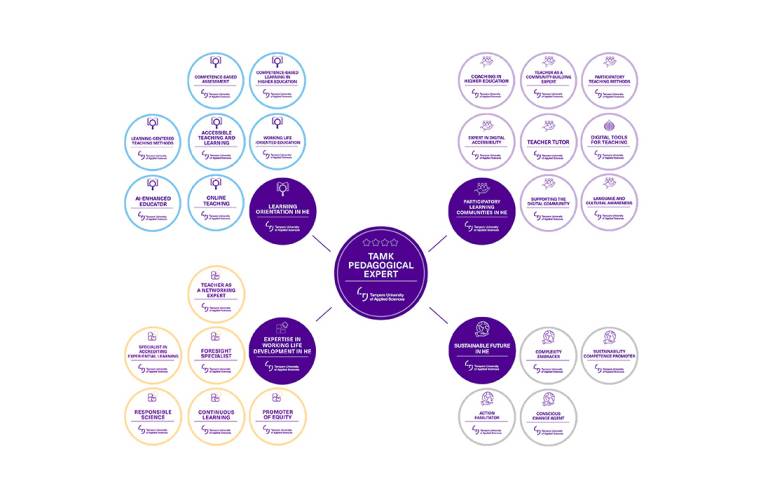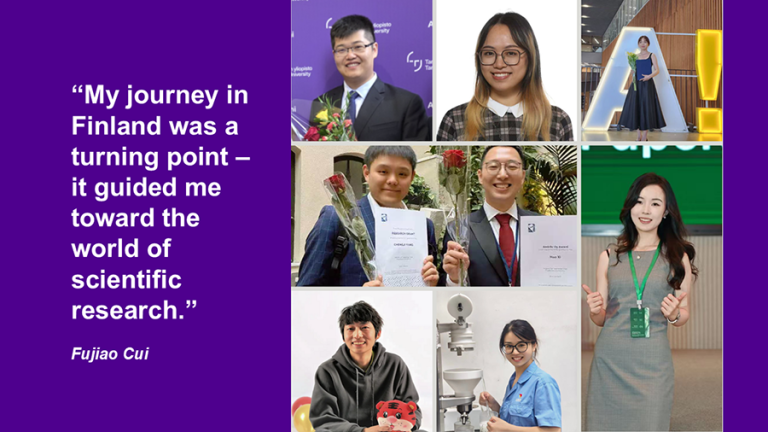The Succeed in Business project promotes the potential of young people to learn and practice entrepreneurial skills, network, and interact with participants from Estonia, Latvia, and Finland. The goal of the project is to design and implement training that will increase the entrepreneurial abilities of young people (Tuni, 2025).
In Tartu, the participants and we lecturers from TAMK (Sanna Tahlo and Päivi Heimonen) learned how business and startup-oriented Estonia, especially Tartu, is. In Tartu, there are various opportunities to develop business ideas through programs and accelerators. What was particularly interesting for me, since I work at HUBS with sustainable entrepreneurship studies, was the fact that Tartu has a Green Accelerator, where products and services that enhance the green transition and contribute to solving environmental issues are developed. This and other insights were gained on the first day in Tartu. Below is a picture of the participants working together and keeping their energy up by playing in a circle.
Why do we need courses, projects, and workshops like Succeed in Business?
Based on Sanna Ilonen’s (2020) thesis “Entrepreneurial Learning in Entrepreneurship Education in Higher Education, “entrepreneurial learning creates entrepreneurial actors. According to her research, entrepreneurial learning is a process of acquiring theoretical knowledge about entrepreneurship, trying entrepreneurship in practice, and reflecting on what has been learned. As a result, learners’ awareness of entrepreneurship grows, and they can commit to an entrepreneurial way of working (Ilonen, 2020).
Ilonen (2020) also writes that entrepreneurial learning is made possible through learning environments, which are built in cooperation between teachers and students. Like in the Succeed in Business project, every partner in the project offers different kinds of learning environments, opportunities for practical tests, and time to reflect and learn.
Although Ilonen writes about entrepreneurial pedagogy in higher education, I believe it can also be utilized with other target groups who want to learn more about entrepreneurship and increase their entrepreneurial abilities.
Scientist and senior lecturer Peter Senge (2006) writes about personal mastery in the context of learning. Personal mastery means personal growth and learning. People who have a high level of personal mastery expand their ability to build the life they want, seek opportunities, and create results. Learning doesn’t only mean acquiring more information but expanding the ability to produce the results we truly want in life. People who have a high level of personal mastery live in learning mode all the time, and they never arrive. Personal mastery is a lifelong process (Senge, 2006, p. 131-132).
That is a relevant goal for us in the Succeed in Business project – we want to support the participants’ entrepreneurial abilities, which strongly include the ability to put things into practice, take initiative, and support their personal mastery.
Text & image: Sanna Tahlo
Sources:
Ilonen, S. 2020. Entrepreneurial learning in entrepreneurship education in higher education.
Senge, P. 2006. Fifth Discipline: The art and practice of the learning organization. New York: Crown Business.
Tuni. 2025. Succeed in business.






